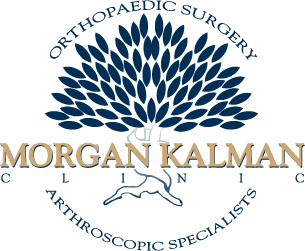Surgical Procedures
Not necessarily, we often see “partial” rotator cuff tear as the result of repetitive use/injury. These often respond to medications, possible injection (PRP) and physical therapy. Smaller atraumatic tears in the elderly will respond to this treatment as well. Athletes or people that have sustained injury and full thickness tears will likely require surgery. We treat each patient individually and will discuss treatment options with you.
Until recent years, patients suffering from hip pain had limited treatment options, which means they were often forced to live with the pain until a total hip replacement was needed. Hip arthroscopy is a minimally invasive procedure performed as an outpatient under anesthesia. It is used to diagnose and treat labral tears, impingement, remove loose bodies and treat other tendon conditions. You may not need surgery, however, often times medications, injections (PRP) and physical therapy can help. Please see us for a consultation so that we may help you.
Arthroscopy involves inserting a small instrument called an arthroscope into your joint. The arthroscope contains a miniature video camera and light source. The video camera displays picture on a monitor giving the surgeon a clear view of your joint. Your problems are diagnosed and treated at the same time. The procedure is performed through small incision on an outpatient basis under anesthesia as a same day procedure. Newer technology allows us to perform a diagnostic arthroscopy in the office. The joints commonly examined and treated are hip, knee shoulder, elbow and ankle in our practice.
The rotator cuff is a group of tendons than connect the shoulder blade to the humeral head (ball). These tendons are short, but very important to shoulder function. When the muscles contract, they pull on the rotator cuff tendons, causing the shoulder to rotate upward, inward or outward. This group of tendons in commonly injured with repetitive activity such as overhead sports and golf.
The most common complaint is a throb or ache at the front of the shoulder or upper arm (deltoid muscle area). The pain is increased with overhead motion, usually worse and night and may even interrupt your sleep. There may also be weakness of the arm but interestingly, the size of the tear may not correlate to your symptoms. Some people with large tears have surprisingly good function whereas smaller tears can be more painful and limiting activity.
